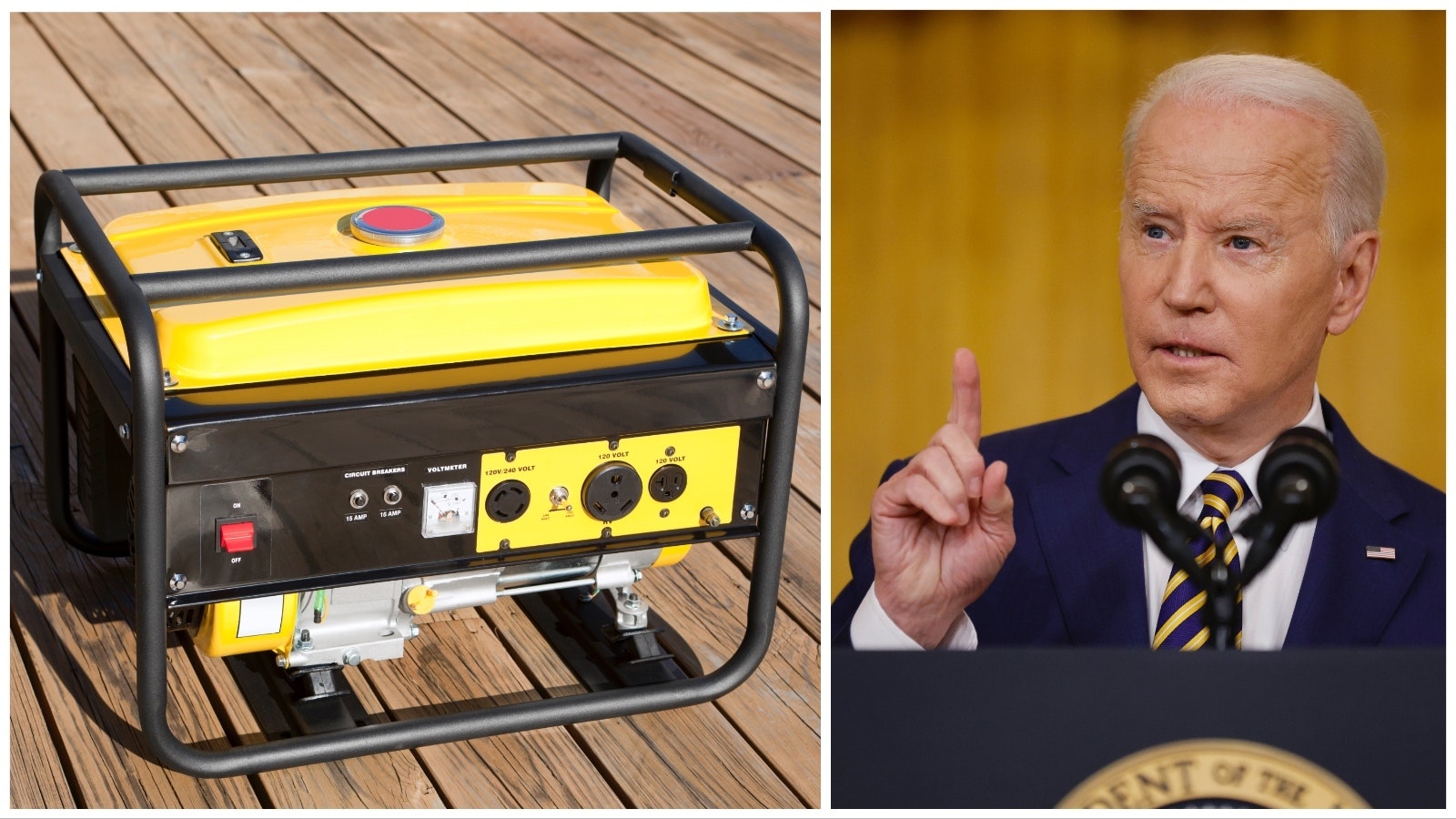Since President Joe Biden took office, he’s made it his mission to oversee the operation of every appliance in the home, including gas stoves, dishwashers, water heaters — and now portable generators.
New rules proposed by the Consumer Product Safety Commission (CPSC) would force generators to shut down if certain levels of carbon monoxide are reached.
The Portable Generator Manufacturers’ Association opposes the rules, arguing that the technical changes would result in increased cost of generators and exhaust temperatures, which would increase the risk of fire.
Convert To Natural Gas
Michael Jordan, founder and CEO of A BEE Friendly Co. in Cheyenne, is known as the “Bee Whisperer” in survivalist circles.
He’s been regularly featured on the Internet’s most listened to podcast on survivalism and sustainability, Jack Spirko’s “Survival Podcast.”
Jordan told Cowboy State Daily that the rules would likely lead to people switching to natural gasoline- and propane-powered generators.
“A lot of people have gone to propane or natural gas because they can just pull the line from their house or fill up gas bottles,” Jordan said.
The perception some have that propane or natural gas generators are safe to use indoors is wrong. Most portable generator manufacturers issue stern warnings to not run them indoors.
Easy To Do
While the rules, if finalized, would impact manufacturers, Jordan said it’s not difficult to convert a gasoline-powered generator to run on natural gas or propane. He said since most generators are not fuel-injection systems, their adjustable carburetion system is easy to alter for different fuel types.
“That’s why we have police cars and highway patrol cars that run on butane and propane,” Jordan said.
Most people don’t use generators for regular power use, he said. For the average consumer, a generator is used in emergency situations or in an RV.
Increased Fire Risk
This is not the first time the CPSC has decided to target manufacturers in the name of public safety and climate change.
The ban on gas stoves was initiated by the commission out of concern based on studies done by the Rocky Mountain Institute, an anti-fossil fuel organization with $130 million in gross receipts in 2021.
The study found an association between gas stoves and respiratory illnesses. Critics have said the organization’s research was biased against fossil fuels and ignored much wider studies that disputed the RMI research.
For portable generator manufacturers, the new rules on generators would mean redesigning most models now on the market.
In comments to the CPSC, the Portable Generator Manufacturers’ Association (PGMA) said that to meet the proposed carbon monoxide restrictions, they’d need fuel injection systems and catalysts. This would result in high exhaust temperatures, greatly increasing the risk of fire.
“The most effective method for reducing unintentional CO poisonings is for consumers to properly operate the portable generator according to the manufacturer’s instructions,” the association said, which means outdoor generators shouldn’t be used indoors.
Creating Shortages
The association also noted that generators are a tool that people buy with the hope they’ll never have to use them. This means that it may be years before older generators fall out of rotation.
In a statement on the proposed rules, Susan Orenga, executive director of PGMA, said the rules would create a shortage of portable generators during regional and national emergencies.
“It will prevent the sale of portable generators that are currently available on the market,” Oregna said.
Rising Demand
She also noted that demand for portable generators is likely to rise as the nation's grid deteriorates.
Long-term and seasonal assessments by the North American Electric Reliability Corporation have found that electricity supplies are likely to fail to keep up with demand, especially during times of inclement weather.
“The timing of the CPSC’s proposed changes are particularly concerning, given repeated warnings that two-thirds of North America is currently facing an energy shortfall this summer during periods of high demand,” Orenga said.
Editor's note: This story has been updated to correct a wrong statement from a source that portable generators are safe to run indoors.





